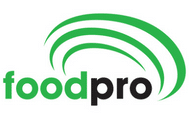Timetable
Panel Discussion: What does the future hold for alternative proteins?
Product Innovation Stage
In this panel presentation by the Alternative Proteins Council (APC) you will hear how curiosity drives creativity, innovation and growth. We will
- share a bit about the APC’s focus on plant based alternative proteins, cultured food/ingredients and foods produced by precision fermentation
- discuss the alternative protein landscape
- key drivers, consumer attitudes and trends, and
- opportunities and challenges for the category
Panel Discussion: Labour Challenges Across Australia’s Food Supply Chain
Product Innovation Stage
In August last year, Australia’s top peak food industry bodies calculated the food supply chain was short by over 170,000 workers from paddock to plate.
To further add to the challenge, food manufacturing is not slowing down. There has been a shortage of skilled labour for some time and as the previous generation of workers retire, the next wave of entering the workforce is not nearly of the same scale. This panel discusses the impacts and solutions for the ongoing labour challenges across Australia's food supply chain.
Exploring the Need for Food Marketing to Go Beyond Packaging
Smart Food Lounge
In today's digitally driven world, the food industry is undergoing significant transformation. As consumers become increasingly connected and tech-savvy, food marketing must evolve beyond traditional strategies to effectively engage and captivate the modern consumer. This presentation dives into the realm of "Beyond Smart Packaging," highlighting the crucial reasons why your marketing needs to expand its focus.
Rachael urges food marketers to transcend the limitations of packaging and explore the vast potential of innovative marketing strategies. By going beyond packaging and harnessing the power of digital technologies, brands can forge deeper connections with consumers, stand out from the competition, and thrive in the ever-evolving food industry.
Cryogenic Freezing Addressing Food Safety and Spoilage Concerns
Smart Food Lounge
In an ever-changing environment (global pandemic, raw material price fluctuation, climate concerns etc.), innovation and cost control remain key focuses of manufacturers to mitigate the impact on profit margins. This session explores the vital role that processes involving cryogenic refrigeration, i.e., using liquid nitrogen or liquid carbon dioxide to cool and freeze, play in supporting preservation of food products. Since cryogenics can deliver outstanding results, it can address many food safety and spoilage concerns for a variety of food categories.
Smart Food Factory – How to Enhance Agility and Versatility in Production
Smart Food Lounge
In this session, you will be presented with case studies of solutions of proven successful in the development of Smart Factories. From enhancing digitalisation and automation in your factory processes to ensuring maximum resource efficiency, CSB-System will demonstrate how to get closer to a Smart Factory with a phased approach.
AIP Sustainable Packaging for the Meat Industry
Smart Food Lounge
Showcasing innovative award-winning sustainable and circular packaging solutions that have won PIDA Awards and WorldStar Packaging Awards for the meat/proteins side of the industry. This session will bring together a number of experts in this field that have recently been recognised for their unique, innovative and sustainable packs. All attendees will attain 1 CPD point per session towards the global Certified Packaging Professional designation and a certificate of attendance.
Registration & Tea/Coffee
MCEC
Melbourne Convention & Exhibition Centre
Enjoy hot beverages and network with industry peers as we get ready to kickstart our multi-day foodpro event.
Flexible Packaging – Now & Into the future
Insights Forum - AIP
The Flexible Packaging: Now & Into the Future training course will cover the basic fundamentals of flexible packaging, its benefits, how you chose the specific structures to match the product, its performance, marketing challenges and how the packaging is manufactured.
With the latest challenges facing us regarding sustainability in packaging the course will discuss the options, pros and cons of Compostability vs Recyclability, moves to mono material recyclable packaging to meet CEFLEX standards and other innovative alternative materials now available. As an add on, the course will be looking at the future plans for flexible packaging and available closed loop collection programs, kerbside collection development, advanced recycling options for circular design and many others to meet Packaging and Food Waste Targets. All attendees will attain 12.5 CPD points per session towards the global Certified Packaging Professional designation and a certificate of attendance.
Introduction to Active & Intelligent Packaging
Insights Forum - AIP
We use smartphones and appliances, drive smart cars, and we increasingly purchase consumer goods that are supplied and transported in smart packages...So, what makes all those things ‘smart’ and how can ‘smart packaging’ be implemented?
This course is designed to assist anyone who is responsible for packaging, marketing, operations, logistics in the consumer goods and broader supply chain seeking to stay relevant in their consumers lives by using smart packaging solutions that offer out-of-the-box business value.
The course will provide attendees with a better understanding of the smart packaging solutions currently available to transform the way they package, deliver and market their products and connect directly with consumer or offer value that will ensure customers ‘come back for more’. Best Practice examples of award-winning packs across Active & Intelligent Packaging will also be discussed in the course.
Discussions will cover active and intelligent packaging in easy to understand terms, and will highlight applications being embraced by brands across various industries who are trying to leverage the benefits of smart packaging solutions to enhance their operations whilst at the same time providing an unparalleled customer experience. Is your business prepared for such transformations?
All attendees will attain 12.5 CPD points per session towards the global Certified Packaging Professional designation and a certificate of attendance.
Early Planning for Successful Projects
Product Innovation Stage
Brownfield of Greenfield knowing how to plan leads to successful delivery.
How do you plan early to make your project a success? What are the rookie mistakes we see people make? Master planning, and budgeting - getting it wrong early can be really costly in the end?
Intellectual Property Relating to Product Innovation in the Food Sector
Product Innovation Stage
There are a suite of intellectual property rights which are directly applicable to the food sector.
Patents offer a means for exclusive protection of a range of innovations in the food sector – for example, manufacturing and factory automation, storage, packaging – that provide a commercial advantage over competitors. Patents also act as tangible assets to facilitate business discussions.
Trade Marks protect your badge of origin and is a way of identifying or distinguishing your product or service from those of third parties. They are a valuable asset if protected and used correctly.
This session will discuss intellectual property with a focus on trademarks and patents as they are applicable to the food sector, what protection they can offer, and how they can best be used as business tools.
How Ignition SCADA can Improve Food Production Processes
Product Innovation Stage
This session demonstrates the importance of real-time visibility in the food production industry and how Ignition SCADA can provide this by monitoring the entire production process. Ignition SCADA not only provides real-time visibility, but it also works to enable digital transformation. By enabling digital transformation, Ignition SCADA allows food producers to move towards Industry 4.0, allowing manufacturers to create smart factories that optimise production, reduce costs, and improve quality.
Natural Blend Solutions for Food Preservation
Product Innovation Stage
Food safety continues to be an ongoing concern with consumers. Temperature variations, extended distances of distribution and demand for cleaner labels have all contributed to an increased risk of food spoilage in both minimally processed and ready-to-eat foods. This session looks at the new DuraShield™ blends, developed by Kalsec®, which leverage the synergistic benefits of cultured dextrose, rosemary extract and buffered vinegar, in carefully designed combinations to effectively inhibit the growth of spoilage microorganisms, development of rancidity and discoloration in food products.
Hygienic Design and Operational Excellence for the Food Industry
Product Innovation Stage
Labour shortages combined with a stronger focus on overall operational excellence, makes this the right time for a deep dive into the benefits of Hygienic Design for the food industry. This session will guide you through how a proactive approach to Hygienic Design will increase sanitation efficiency and positively impact production up-time, product shelf-life, asset (preventive) maintenance, etc. and how Hygienic Design ultimately affects your business’ long-term profitability and sustainability.
Driving Sustainability through Digital Transformation for the Food & Beverage Industry
Smart Food Lounge
Consumers are demanding access to much more data surrounding the sources of raw materials that make up their foods and whether those materials are produced sustainably. These developments drive requirements for greater product insights all along the food and beverage supply chain. We refer to this as end-to-end traceability and transparency, a holistic supply chain vision that captures and analyses data from different sources and stakeholders.
In this session, you will hear about how the latest technologies and businesses are partnering to deliver this experience, and meet consumer demands.
APCO’s Australasian Recycling Label Program and Sustainable Packaging Guidelines
Smart Food Lounge
The Australasian Recycling Label Program and APCO’s Sustainable Packaging Guidelines (SPGs): The principles on designing more sustainable packaging and how to clearly communicate packaging disposal at the products end-of-life. In ths session, APCO’s Head of Programs Sarah Sannen will take a deep-dive into how APCO’s Australasian Recycling Label (ARL) Program and the Sustainable Packaging Guidelines are supporting brand owners and packaging manufacturers to design packaging that is circular, and teaching consumers how to recycle correctly.
Everything you Need to Know about Precision Fermentation
Smart Food Lounge
Precision fermentation, also known as microbial fermentation, is a rapidly growing technology in the food industry. It involves using microorganisms to produce various food and beverage products - providing complementary protein for our more traditional sources in a way that is sustainable and efficient.
But like many novel technologies, precision fermentation is not without its challenges to break into the commercial world. In this session you will get an introduction to this exciting new technology, have an overview of the global technology and commercial landscape, and hear about some of the challenges and possible solutions in the food industry to adopt the technology.
Good for Business, People and the Planet – the Triple Benefit of Commercialising Excess Food
Smart Food Lounge
Food waste is a 3.2 million tonne reality of supply chains. Yume is here to do something about it. Targeting an industry hot spot for food waste - excess food - with a plug & play tech platform, Yume is helping manufacturers unlock value for their business while tackling Australia’s food waste problem in the process. In this session, learnings will be shared from case studies of trailblazing manufacturers who are embracing Yume technology to digitise the sale and donation of excess food, and how others in the food industry can follow their lead. We'll demonstrate why excess food is a common problem in the supply chain and how technology is at the heart of solutions that can deliver on the triple bottom line.
Game Changing Future Trends in Food
Product Innovation Stage
What trends are we seeing in investment in food facilities?
How will new tech trends on the global stage change food production?
How will technology eliminate waste and improve sustainability?
How can we be early adopters and ensure a bright future?
Unlocking Value for Australia’s Food Supply Chain with Sustainable, Automated and Connected Packaging
Product Innovation Stage
Whether it’s adverse weather events, labour shortages, shifting market trends or the imminent global recession, the demands on Australia’s food supply chain are challenging. No matter what you’re packing, food companies can prepare for these events through leveraging sustainable, automated, and digitally connected packaging solutions, that yield cost savings, resource and throughput efficiencies, and sustainable brand engagement.
Whether you’re a food processor or brand owner, this session will offer ways to bring back predictability and profits with Sealed Air’s trusted CRYOVAC brand food packaging solutions and SEE Automation packaging systems.
Novel Ingredient Development from Upcycling
Product Innovation Stage
Developed with circularity in mind through sustainably sourced raw material from upcycled citrus peels, a by-product of the juicing industry, NUTRAVA® Citrus Fibre is a highly versatile and effective solution for formulators. Via a proprietary process, CP Kelco ideated and developed NUTRAVA® Citrus Fibre to offer the food & beverage industry a clean-label friendly option. This session demonstrates the multiple benefits of NUTRAVA® Citrus Fibre, including stability, suspension, water-binding, texture, and overall sensory experience support in various applications.
Digitalisation – Where to from here?
Product Innovation Stage
The challenges faced by Food and Beverage manufacturers around productivity, cost pressures, CO2 footprint, and changing consumer demand are driving the need for innovation in the manufacturing space.
Industry 4.0, digitalisation, and decarbonisation give opportunities for manufacturers to unlock the potential of their operations and implementing a digital strategy gives them the tools to respond quickly, flexibly and cost effectively to demands, whilst maintaining quality.
However, this is often a new frontier for manufacturers with many unknowns. In this session, you will be shown examples of different stages of the digitalisation journey look like and how SMEs can plan to progress to the next stages with practical steps.
AIP Sustainable Packaging Design for the Food Industry
Smart Food Lounge
This session will showcase innovative packs that have recently award-winning PIDA Awards and WorldStar Packaging Awards including certified compostable packs, fibre based packs, packs made out of renewable materials and smart packaging. This session will bring together a number of experts in this field that have recently been recognised for their intuitive packaging that can potentially save food loss and waste across a value chain and also are more sustainable.
Leveraging Bio-based Food Ingredient Solutions to Reduce Food Waste
Smart Food Lounge
Consumer demands have been evolving over the years. It is not sufficient for food to just taste great, but it needs to be nutritious and convenient as well. For example, consumer demand for convenience can include wanting minimal meal preparation, omnichannel availability and flexible subscriptions etc. which increases the challenge for inventory management at the manufacturers’ end. In keeping up with these challenging demands, it is easy for food manufacturers to overlook the important targets of Climate Change, ESG and sustainable development goals (SDGs).
In this session, Corbion will share practical information on how to leverage food preservation - to reduce food waste and meet prevailing consumer needs in the chilled prepared foods segment.
Harnessing Digital Disruption to Transform Supply Chain
Smart Food Lounge
FMCG companies have experienced the effects of supply chain disruptions over the past few years. They have been forced to extend their order commitments with their suppliers in order to save production capacity. This impacts inventory and agility, and when companies are not able to replenish retailer shelves, they leave space for competitors to enter the space.
One of the many lessons learned from continuing supply chain disruptions is that making sources of internal inefficiency more visible and assessing risks throughout the supply chain are two crucial steps to increasing the resilience of any company which is nearly impossible using spreadsheets or paper-based reports.
In this session, you will learn how your organisation can invest in digital tools that deliver full traceability and operational efficiencies and let organisations move faster. Companies can respond to supply chain disruptions with greater agility, using digital practices via a single source of truth and a proven cloud platform.
The Sustainability Motor for Decarbonation Promises
Smart Food Lounge
Nothing is clearer than sustainability is the future direction. However, it is unclear for many organisations is the roadmap to deliver on their given decarbonation promises. It is not new to communicate sustainability pledges via marketing tools or through Board directors on AGMs. The new part is how it will get embedded within the organisation's DNA as ways of working. A successful sustainability roadmap aligns horizontally to the traditional business strategy with the measurable Environmental, the Social & Governance platform to an all-encompassing business direction. In this session, you will presented with a blueprint roadmap with two real life practise case studies (from Australian ASX & bluechip Japanese F&B organisations).
Navigating the Food Regulation Maze Workshop
Insights Forum - AIFST
Food regulation can be confusing. Do you ever ask yourself "How do I know if the ingredients I want to use in my new product are approved and safe?"
Or what about... "How do I know what I can or can’t say about my product?"
This workshop is designed to help your business collect and manage the information needed to assist with regulatory compliance.
The workshop will cover:
• Overview of the food regulation system in Australia and New Zealand
• Australian Consumer Law (ACL)
• Mandatory labelling requirements under the ANZ Food Standards Code
• Uniform Trade Measurement Legislation
• Practical exercise looking at assessing a label
Whether you are entering the food industry or just trialling new products, learn more about the regulations that can protect your products and your consumers.
Don’t Build Todays’ Facility for Tomorrow
Product Innovation Stage
The things that really matter in your new factory. Energy, People, Automation - we're at a tipping point of designing to produce the way it has been done to now designing for how things will be done.
Supporting the Healthy Aging Market with Innovative Food Concepts
Product Innovation Stage
In this session, you will learn about the healthy aging market, strategies for healthy aging through nutrition, and innovative food concepts adapted to aging populations. All over the world, people are living longer. Today, for the first time in history, most people have a life expectancy of over 60 years (WHO, 2020). Historically, aging has been associated with a decrease in physical and cognitive abilities. It is possible, however, to support people’s healthy aging, especially in terms of diet.
Maximising Profit & Minimising Giveaway through Yield Control Management.
Product Innovation Stage
Yield has a significant and direct impact on the bottom line as it often reflects a company’s overall competitiveness. Since 70-75% of the cost of the final product stems from the raw material, it is vital to closely control the actual yield. Even very small deviations can have a substantial financial impact on the profitability of the business because of the ever-increasing amount of food being processed. This session will demonstrate how understanding how process deviations can be set to trigger corrective actions, or a response, can quickly improving the production process to maximise the profit.
The Benefits of Low Temperature Spray Drying
Product Innovation Stage
The ability to dry in a continuous commercial operation at temperatures mild enough to retain functionality was always limited by technology. Engineered and manufactured in the US, the recently launched PolarDry® technology has overcome this limitation with proven capacity to produce powders of very high quality at low temperatures. This session discusses the benefits demonstrated for manufacturing oil-encapsulated powders and materials that are biologically active.
Spotlight on Australia: Native and Indigenous Flavours and Scents
Smart Food Lounge
CSIRO’s Dr Cheryl Taylor has a commitment to blending science innovation with tangible outcomes, especially for Indigenous communities. Based at CSIRO’s Werribee site near Melbourne, she has spent the past decade supporting Indigenous food sovereignty. In this presentation Cheryl will explore the blending of Western Science and Indigenous Ecological knowledge, looking at how Indigenous businesses are achieving success with native foods, ingredients, flavours and scents. Cheryl will share the success story that is Black Duck Foods, a Victorian based Aboriginal social enterprise focussed on sustainability and the introduction of more Indigenous food products into the market.
The Sustainability of Meat
Smart Food Lounge
Over the past five years the meat industry has tackled a broad range of issues which impacts not only the sustainability of itself but the sustainability of the environment it works in. Key to this discussion includes the workforce within meat processing and the broader supply chain, processing innovation to achieve a number of goals, 100 percent raw material utilisation and the logistics of getting food on the plate.
How Smart Packaging Unwraps a New World for Consumer Brands
Smart Food Lounge
Mobile technology is now interwoven into everyone’s lives, and brands are quickly learning that smart (digital) packaging can simplify how they connect with consumers. As more consumers turn to their phones and laptops, smart packaging is the gateway to amplified consumer experiences.
By digitising packaging, brands can unlock valuable data and analytics needed to grow market share, reduce costs and mitigate risks. Whether you’re packing food or other consumer goods, in this session, you can discover the possibilities of smart packaging and how you can fast track the adoption with prismiq – Sealed Air’s latest digital packaging brand.













































